
The United Nations Educational, Scientific and Cultural Organization (UNESCO; pronounced /juːˈnɛskoʊ/ yew-NESK-oh) is a specialized agency of the United Nations established on 16 November 1945. Its stated purpose is to contribute to peace and security by promoting international collaboration through education, science, and culture in order to further universal respect for justice, the rule of law, and the human rights along with fundamental freedoms proclaimed in the UN Charter.[1] It is the heir of the League of Nations' International Commission on Intellectual Cooperation.
UNESCO has 193 Member States and seven Associate Members.[2][3] The organization is based in Paris, France, with over 50 field offices and many specialized institutes and centres throughout the world. Most of the field offices are "cluster" offices covering three or more countries; there are also national and regional offices. UNESCO pursues its objectives through five major programs: education, natural sciences, social and human sciences, culture, and communication and information. Projects sponsored by UNESCO include literacy, technical, and teacher-training programmes; international science programmes; the promotion of independent media and freedom of the press; regional and cultural history projects; the promotion of cultural diversity; international cooperation agreements to secure the world cultural and natural heritage (World Heritage Sites) and to preserve human rights, and attempts to bridge the worldwide digital divide.
Contents[hide]
1 Mission and priorities
2 History
3 Activities
4 Official UNESCO NGOs
5 UNESCO Institutes and Centres
5.1 Education
5.2 Natural sciences
5.3 Statistics
6 Official list of UNESCO prizes
6.1 Inactive UNESCO prizes
7 Member states
8 Postage stamps
9 Directors-General
10 UNESCO offices
10.1 Office types
10.1.1 Cluster offices
10.1.2 National Offices
10.1.3 Regional sureaux
10.1.4 Liaison offices
10.2 UNESCO field offices by region
10.2.1 Africa
10.2.2 Arab States
10.2.3 Asia and Pacific
10.2.4 Europe and North America
10.2.5 Latin America and the Caribbean
11 Elections
12 Controversy and reform
12.1 New World Information and Communication order
12.2 Internal reforms
12.3 Israel
13 References
14 External links
[edit] Mission and priorities
UNESCO’s mission is to contribute to the "building of peace", reducing the poverty, promoting sustainable development and intercultural dialogue through education, the sciences, culture, communication and information. The Organization focuses, in particular, on two global priorities: Africa and Gender Equality.[4]
Other priorities of the Organization include attaining quality education for all and lifelong learning, addressing emerging social and ethical challenges, fostering cultural diversity, a culture of peace and building inclusive knowledge societies through information and communication.[5]
The broad goals and concrete objectives of the international community – as set out in the internationally agreed development goals, including the Millennium Development Goals (MDGs) – underpin all UNESCO’s strategies and activities.
[edit] History
The UNESCO flag
UNESCO and its mandate for international intellectual co-operation can be traced back to the League of Nations resolution on 21 September 1921, to elect a Commission to study the question.[6] The International Commission of Intellectual Co-operation (CICI) was officially created on 4 January 1922, as a consultative organ composed of individuals elected based on their personal qualifications.[7] The International Institute for Intellectual Cooperation (IICI) was then created in Paris on 9 August 1925, to act as the executing agency for the CICI.[7] On 18 December 1925, the International Bureau of Education (IBE) began work as a non-governmental organization in the service of international educational development.[8] However, the work of these predecessor organizations was largely interrupted by the onset of the Second World War.
After the signing of the Atlantic Charter and the Declaration of the United Nations, the Conference of Allied Ministers of Education (CAME) began meetings in London which continued between 16 November 1942 to 5 December 1945. On 30 October 1943, the necessity for an international organization was expressed in the Moscow Declaration, agreed upon by China, the United Kingdom, the United States of America and the USSR. This was followed by the Dumbarton Oaks Conference proposals of 9 October 1944. Upon the proposal of CAME and in accordance with the recommendations of the United Nations Conference on International Organization (UNCIO), held in San Francisco in April–June 1945, a United Nations Conference for the establishment of an educational and cultural organization (ECO/CONF) was convened in London 1–16 November 1945. 44 governments were represented. At the ECO/CONF, the Constitution of UNESCO was introduced and signed by 37 countries, and a Preparatory Commission was established.[9] The Preparatory Commission operated between 16 November 1945, and 4 November 1946 – the date when UNESCO’s Constitution came into force with the deposit of the twentieth ratification by a member state.[10]
The first General Conference took place from 19 November to 10 December 1946, and elected Dr. Julian Huxley to the post of Director-General.[11] The Constitution was amended in November 1954 when the General Conference resolved that members of the Executive Board would be representatives of the governments of the States of which they are nationals and would not, as before, act in their personal capacity.[12] This change in governance distinguished UNESCO from its predecessor, the CICI, in terms of how member states would work together in the Organization’s fields of competence. As member states worked together over time to realize UNESCO’s mandate, political and historical factors have shaped the Organization’s operations in particular during the Cold War, the decolonization process, and the dissolution of the USSR.
Among the major achievements of the Organization is its work against racism, for example through influential statements on race starting with a declaration of anthropologists (among them was Claude Lévi-Strauss) and other scientists in 1950[13] and concluding with the 1978 Declaration on Race and Racial Prejudice.[14] In 1956, the Republic of South Africa withdrew from UNESCO claiming that some of the Organization’s publications amounted to “interference” in the country’s “racial problems.”[15] South Africa rejoined the Organization in 1994 under the leadership of Nelson Mandela.
UNESCO’s early work in the field of education included the pilot project on fundamental education in the Marbial Valley, Haiti, started in 1947.[16] This project was followed by expert missions to other countries, including, for example, a mission to Afghanistan in 1949.[17] In 1948, UNESCO recommended that Member States should make free primary education compulsory and universal.[18] In 1990 the World Conference on Education for All, in Jomtien, Thailand, launched a global movement to provide basic education for all children, youths and adults.[19] Ten years later, the 2000 World Education Forum held in Dakar, Senegal, led member governments to commit to achieving basic education for all by 2015.[20]
UNESCO’s early activities in the field of culture included, for example, the Nubia Campaign, launched in 1960.[21] The purpose of the campaign was to move the Great Temple of Abu Simbel to keep it from being swamped by the Nile after construction of the Aswan Dam. During the 20-year campaign, 22 monuments and architectural complexes were relocated. This was the first and largest in a series of campaigns including Moenjodaro (Pakistan), Fez (Morocco), Kathmandu (Nepal), Borobudur (Indonesia) and the Acropolis (Greece). The Organization’s work on heritage led to the adoption, in 1972, of the Convention concerning the Protection of the World Cultural and Natural Heritage.[22] The World Heritage Committee was established in 1976 and the first sites inscribed on the World Heritage List in 1978.[23] Since then important legal instruments on cultural heritage and diversity have been adopted by UNESCO member states in 2003 (Convention for the Safeguarding of the Intangible Cultural Heritage[24]) and 2005 (Convention on the Protection and Promotion of the Diversity of Cultural Expressions[25]).
At an intergovernmental meeting of UNESCO in Paris in December 1951 was held which led to the creation of the European Council for Nuclear Research (CERN)[26] in 1954. The World Wide Web was born at CERN in 1989.
Arid Zone programming, 1948–1966, is another example of an early major UNESCO project in the field of natural sciences.[27] In 1968, UNESCO organized the first intergovernmental conference aimed at reconciling the environment and development, a problem which continues to be addressed in the field of sustainable development. The main outcome of the 1968 conference was the creation of UNESCO’s Man and the Biosphere Programme.[28]
In the field of communication, the free flow of information has been a priority for UNESCO from its beginnings. In the years immediately following World War II, efforts were concentrated on reconstruction and on the identification of needs for means of mass communication around the world. UNESCO started organizing training and education for journalists in the 1950s.[29] In response to calls for a "New World Information and Communication Order" in the late 1970s, UNESCO established the International Commission for the Study of Communication Problems,[30] which produced the 1980 MacBride report (named after the Chair of the Commission, the Nobel Peace Prize laureate Seán MacBride).[31] Following the MacBride report, UNESCO introduced the Information Society for All[32] programme and Toward Knowledge Societies[33] programme in the lead up to the World Summit on the Information Society in 2003 (Geneva) and 2005 (Tunis).
[edit] Activities
UNESCO offices in Brasília
UNESCO implements its activities through the five programme areas of Education, Natural Sciences, Social and Human Sciences, Culture, and Communication and Information.
Education: UNESCO is providing international leadership[citation needed] in creating learning societies with educational opportunities for all; it supports research in Comparative education; and provides expertise and fosters partnerships to strengthen national educational leadership and the capacity of countries to offer quality education for all. This includes the
Eight specialized Institutes in different topics of the sector
UNESCO Chairs, an international network of 644 UNESCO Chairs, involving over 770 institutions in 126 countries.
Environmental Conservation Organisation
Organization of the International Conference on Adult Education (CONFINTEA) in an interval of 12 years
UNESCO ASPNet, an international network of 8,000 schools in 170 countries
UNESCO does not accredit institutions of higher learning.[34]
UNESCO also issues public 'statements' to educate the public:
Seville Statement on Violence: A statement adopted by UNESCO in 1989 to refute the notion that humans are biologically predisposed to organised violence.
Designating projects and places of cultural and scientific significance, such as:
International Network of Geoparks
Biosphere reserves, through the Programme on Man and the Biosphere (MAB), since 1971
City of Literature; in 2007, the first city to be given this title was Edinburgh, the site of Scotland's first circulating library.[35] In 2008, Iowa City, Iowa became the City of Literature.
Endangered languages and linguistic diversity projects
Masterpieces of the Oral and Intangible Heritage of Humanity
Memory of the World International Register, since 1997
Water resources management, through the International Hydrological Programme (IHP), since 1965
World Heritage Sites
Encouraging the "free flow of ideas by images and words" by:
Promoting freedom of expression, press freedom and access to information, through the International Programme for the Development of Communication and the Communication and Information Programme
Promoting universal access to ICTs, through the Information for All Programme (IFAP)
Promoting Pluralism and cultural diversity in the media
Promoting events, such as:
International Decade for the Promotion of a Culture of Peace and Non-Violence for the Children of the World: 2001–2010, proclaimed by the UN in 1998
World Press Freedom Day, 3 May each year, to promote freedom of expression and freedom of the press as a basic human right and as crucial components of any healthy, democratic and free society.
Criança Esperança in Brazil, in partnership with Rede Globo, to raise funds for community-based projects that foster social integration and violence prevention.
International Literacy Day
International Year for the Culture of Peace
Founding and funding projects, such as:
Migration Museums Initiative: Promoting the establishment of museums for cultural dialogue with migrant populations.[36]
UNESCO-CEPES, the European Centre for Higher Education: established in 1972 in Bucharest, Romania, as a de-centralized office to promote international co-operation in higher education in Europe as well as Canada, USA and Israel. Higher Education in Europe is its official journal.
Free Software Directory: since 1998 UNESCO and the Free Software Foundation have jointly funded this project cataloguing free software.
FRESH Focussing Resources on Effective School Health.[37]
OANA, the Organization of Asia-Pacific News Agencies
International Council of Science
UNESCO Goodwill Ambassadors
ASOMPS, Asian Symposium on Medicinal Plants and Spices, a series of scientific conferences held in Asia
Botany 2000, a programme supporting taxonomy, and biological and cultural diversity of medicinal and ornamental plants, and their protection against environmental pollution
[edit] Official UNESCO NGOs
UNESCO enjoys official relations with 322 international NGOs.[38] Most of these are what UNESCO calls "operational", a select few are "formal".[39] Operational relations are reserved for an NGO with an active presence in the field, with special expertise and with an ability to channel the concerns of their clients. Requests for admission by an NGO to UNESCO for operational relations can be made to the Director-General at any time. Formal relations are reserved for those NGOs who have a sustained role in cooperating with UNESCO both upstream and downstream. Admission for formal recognition is only granted to international NGOs that are widely representative and expert in their field of activity, and with a genuinely international structure and membership. Formal relations are themselves sub-divided into two types, "consultative" or "associate", depending on the role and structure of the NGO itself. The Executive Board, one of UNESCO's governing bodies, decides on requests for admission by NGOs to one or the other type of formal relation on the basis of recommendations made by the Director-General. Formal relations are established for renewable periods of six years.
The highest form of affiliation to UNESCO is "formal associate", and the 22 NGOs[40] with formal associate (ASC) relations occupying offices at UNESCO are:
International Baccalaureate (IB)
Coordinating Committee for International Voluntary Service (CCIVS)
Education International (EI)
International Association of Universities (IAU)
International Council for Film, Television and Audiovisual Communication (IFTC)
International Council for Philosophy and Humanistic Studies (ICPHS) which publishes Diogenes
International Council for Science (ICSU)
International Council of Museums (ICOM)
International Council of Sport Science and Physical Education (ICSSPE)
International Council on Archives (ICA)
International Council on Monuments and Sites (ICOMOS)
International Federation of Journalists (IFJ)
International Federation of Library Associations and Institutions (IFLA)
International Federation of Poetry Associations (IFPA)
International Music Council (IMC)
International Scientific Council for Island Development (INSULA)
International Social Science Council (ISSC)
International Theatre Institute (ITI)
International Union for Conservation of Nature and Natural Resources (IUCN)
International Union of Technical Associations and Organizations
Union of International Associations (UIA)
World Association of Newspapers (WAN)
World Federation of Engineering Organizations (WFEO)
World Federation of UNESCO Clubs, Centres and Associations (WFUCA)
[edit] UNESCO Institutes and Centres
UNESCO Institute for Water Education in Delft
The institutes are specialized departments of the Organization that support UNESCO's programme, providing specialized support for cluster and national offices.
[edit] Education
UNESCO International Bureau of Education (IBE); Geneva (Switzerland) specializes in educational contents, methods and structures. IBE shares expertise on curriculum development and aims to introduce innovative approaches in curriculum design and implementation, improve practical skills, and facilitate international dialogue on educational policies and practices.
UNESCO Institute for Lifelong Learning promotes lifelong learning policy and practice with a focus on adult learning and education, especially literacy and non-formal education and alternative learning opportunities for marginalized and disadvantaged groups.
UNESCO International Institute for Educational Planning (IIEP); Paris (France) and Buenos Aires (Argentina) is a centre for training and research to strengthen the capacity of countries to plan and manage their education systems.
UNESCO Institute for Information Technologies in Education (IITE); Moscow (Russian Federation) serves as a centre of excellence and provider of technical support and expertise in the area of ICT usage in education.
UNESCO International Institute for Capacity-Building in Africa (IICBA); Addis Ababa (Ethiopia) works to enhance the capacities of regional, national and local level educational institutions in Africa, thus providing the opportunity for technological improvements, such as the utilization of electronic media for networking and for educational purposes, targeting both individuals and institutions.
UNESCO International Institute for Higher Education in Latin America and the Caribbean (IESALC); Caracas (Venezuela) contributes to the development and transformation of the tertiary education through the reinforcement of a work plan that, among other purposes, attempts to be an instrument to support the management of change and the required transformations in order that higher education in the region becomes an effective promoter of a culture of peace that allows to make viable - in an age of globalization - the human sustainable development based on principles of justice, equity, freedom, solidarity, democracy and respect of the human rights.
UNESCO International Centre for Technical and Vocational Education and Training (UNEVOC); Bonn (Germany) works to strengthen and upgrade countries' Technical and Vocational Education and Training (TVET) systems.
UNESCO European Centre for Higher Education (CEPES); Bucarest (Romania) promotes co-operation and provides technical support in the field of higher education among UNESCO’s Member States in Central, Eastern and South-East Europe.
[edit] Natural sciences
UNESCO Institute for Water Education (IHE); Delft (Netherlands)the largest water education facility in the world, and the only institution in the UN system authorised to confer accredited MSc degrees.
International Centre for Theoretical Physics (ICTP); Trieste (Italy) aims to foster growth of advanced studies and research in physical and mathematical sciences, develops high level programmes and conducts research especially in developing countries.
[edit] Statistics
UNESCO Institute for Statistics (UIS); Montreal (Canada) provides an impressive collection of up to date statistics in the fields of education, science and technology, culture and communication.
[edit] Official list of UNESCO prizes
UNESCO currently awards 22 prizes[41] in education, science, culture and peace:
Félix Houphouët-Boigny Peace Prize
L’Oréal-UNESCO Awards for Women in Science
UNESCO/King Sejong Literacy Prize
UNESCO/Confucius Prize for Literacy
UNESCO/Emir Jaber al-Ahmad al-Jaber al-Sabah Prize to promote Quality Education for Persons with Intellectual Disabilities
UNESCO King Hamad Bin Isa Al-Khalifa Prize for the Use of Information and Communication Technologies in Education
UNESCO/Hamdan Bin Rashid Al-Maktoum Prize for Outstanding Practice and Performance in Enhancing the Effectiveness of Teachers
UNESCO/Kalinga Prize for the Popularization of Science
UNESCO/Institut Pasteur Medal for an outstanding contribution to the development of scientific knowledge that has a beneficial impact on human health
UNESCO/Sultan Qaboos Prize for Environmental Preservation
Great Man-Made River International Water Prize for Water Resources in Arid Zones presented by UNESCO (title to be reconsidered)
Michel Batisse Award for Biosphere Reserve Management
UNESCO/Obiang Nguema Mbasogo International Prize for Research in the Life Sciences
UNESCO/Bilbao Prize for the Promotion of a Culture of Human Rights
UNESCO Prize for Peace Education
UNESCO-Madanjeet Singh Prize for the Promotion of Tolerance and Non-Violence
UNESCO/International José Martí Prize
UNESCO/Avicenna Prize for Ethics in Science
UNESCO/Juan Bosch Prize for the Promotion of Social Science Research in Latin America and the Caribbean
Sharjah Prize for Arab Culture
Melina Mercouri International Prize for the Safeguarding and Management of Cultural Landscapes (UNESCO-Greece)
IPDC-UNESCO Prize for Rural Communication
UNESCO/Guillermo Cano World Press Freedom Prize
UNESCO/Jikji Memory of the World Prize
[edit] Inactive UNESCO prizes
Carlos J. Finlay Prize for Microbiology (inactive since 2005)
International Simón Bolívar Prize (inactive since 2004)
UNESCO Prize for Human Rights Education
This section requires expansion.
[edit] Member states
Main article: Member states of UNESCO
As of October 2009, UNESCO counts 193 Member States and seven Associate Members.[42] Some member states have additional National Organizing Committees from some of their dependent territories.[43]
[edit] Postage stamps
Various countries have issued postage stamps commemorating UNESCO. The organization's seal and its headquarters building have been common themes. In 1955 the United Nations Postal Administration (UNPA) issued its first ones honouring the organization.
While UNESCO has never separately issued stamps valid for postage, from 1951 to 1966 it issued a series of 41 "gift stamps" to raise money for its activities. Designed by artists in various countries, they were sold at a desk by the UNPA counter located in the United Nations Headquarters building in New York City. No longer available at the UN, most of these Cinderella stamps can be purchased at low cost from speciality stamp dealers.
[edit] Directors-General
Julian Huxley (1946–1948)
Jaime Torres Bodet (1948–1952)
John Wilkinson Taylor (acting 1952–1953)
Luther Evans (1953–1958)
Vittorino Veronese (1958–1961)
René Maheu (1961–1974; acting 1961)
Amadou-Mahtar M'Bow (1974–1987)
Federico Mayor Zaragoza (1987–1999)
Koïchiro Matsuura (1999–2009)
Irina Bokova (2009– )
[edit] UNESCO offices
UNESCO Headquarters in Paris, France
UNESCO has offices in many locations across the globe; its headquarters are located in Paris, France.48°51′00″N 2°18′22″E / 48.85°N 2.306°E / 48.85; 2.306 (UNESCO headquarters))Coordinates: 48°51′00″N 2°18′22″E / 48.85°N 2.306°E / 48.85; 2.306 (UNESCO headquarters))
Through its field offices, UNESCO develops strategies, programmes and activities in consultation with national authorities and other partners.
[edit] Office types
UNESCO's field offices are categorized into four primary office types based upon their function and geographic coverage. The following descriptions identify the primary dividing lines.
[edit] Cluster offices
A cluster office covers a group of countries and is the central component in the field, around which are organized national offices and regional bureaux. The 27 cluster offices, covering 148 Member States, represent the main supporting structure of UNESCO Secretariat’s network in the field.[44]
[edit] National Offices
In addition to cluster offices which are the main supporting structure of the Secretariat’s network in the field, there are 21 national offices, each serving a single Member State. These exceptions to the cluster system involve either the so-called E-9 countries (nine highly-populated countries) which are either in post-conflict situations or are in transition.[45]
[edit] Regional sureaux
Regional bureaux and regional advisers specializing in the fields of education, science, the social sciences, culture and communication provide specialized support to cluster and national offices in a given region.[46]
[edit] Liaison offices
The decentralized network includes two liaison offices to the United Nations in New York and Geneva and a liaison office to the European Union in Brussels.[47]
[edit] UNESCO field offices by region
The following list of all UNESCO Field Offices is organized geographically by UNESCO Region and identifies the members states and associate members of UNESCO which are served by each office.[48]
[edit] Africa
UNESCO Office in Harare Headquarters
Abuja – National Office to Nigeria.
Accra – Cluster Office for Benin, Côte d'Ivoire, Ghana, Liberia, Nigeria, Sierra Leone and Togo.
Addis Ababa – Cluster Office for Djibouti and Ethiopia.
Bamako – Cluster Office for Burkina Faso, Guinea, Mali and Niger.
Brazzaville – National Office to Congo.
Bujumbura – National Office to Burundi.
Dakar – Regional Bureau for Education in Africa and Cluster Office for Cape Verde, Gambia, Guinea-Bissau, and Senegal.
Dar es-Salaam – Cluster Office for Comoros, Madagascar, Mauritius, Seychelles and United Republic of Tanzania.
Harare – Cluster Office for Botswana, Malawi, Mozambique, Zambia, and Zimbabwe.
Kinshasa – National Office to the Democratic Republic of Congo.
Libreville – Cluster Office for Democratic Republic of the Congo, Equatorial Guinea, Gabon, Sao Tome and Principe.
Maputo – National Office to Mozambique.
Nairobi – Regional Bureau for Sciences in Africa and Cluster Office for Burundi, Eritrea, Kenya, Rwanda, Somalia and Uganda.
Windhoek – Cluster Office to Angola, Lesotho, Namibia, South Africa and Swaziland.
Yaoundé – Cluster Office to Cameroon, Central African Republic and Chad.
[edit] Arab States
UNESCO Office for Iraq Headquarters
Iraq – National Office for Iraq.
Amman – National Office to Jordan.
Beirut – Regional Bureau for Education in the Arab States and Cluster Office to Lebanon, Syria, Jordan, Iraq and the Autonomous Palestinian Territories.
Cairo – Regional Bureau for Sciences in the Arab States and Cluster Office for Egypt, Libyan Arab Jamahiriya and Sudan.
Doha – Cluster Office to Bahrain, Kuwait, Oman, Qatar, Saudi Arabia, United Arab Emirates and Yemen.
Khartoum – National Office to Sudan.
Rabat – Cluster Office to Algeria, Mauritania, Morocco and Tunisia.
Ramallah – National Office to the Palestinian Authority.
[edit] Asia and Pacific
Almaty – Cluster Office to Kazakhstan, Kyrgyzstan, Tajikistan and Uzbekistan.
Apia – Cluster Office to Australia, Cook Islands, Fiji, Kiribati, Marshall Islands, Micronesia (Federated States of), Nauru, New Zealand, Niue, Palau, Papua New Guinea, Samoa, Solomon Islands, Tonga, Tuvalu, Vanuatu and Tokelau (Associate Member).
Bangkok – Regional Bureau for Education in Asia and the Pacific and Cluster Office to Thailand, Myanmar, Lao PDR, Singapore, Viet Nam and Cambodia.
Beijing – Cluster Office to the Democratic People's Republic of Korea (DPRK), Japan, Mongolia, the People's Republic of China and the Republic of Korea (ROK).
Dhaka – National Office to Bangladesh.
Hanoi – National Office to Vietnam.
Islamabad – National Office to Pakistan.
Jakarta – Regional Bureau for Sciences in Asia and the Pacific and Cluster Office to Brunei Darussalam, Indonesia, Malaysia, the Philippines, and Timor Leste.
Kabul – National Office to Afghanistan.
Kathmandu – National Office to Nepal.
New Delhi – Cluster Office to Bangladesh, Bhutan, India, Maldives, Nepal and Sri Lanka.
Phnom Penh – National Office to Cambodia.
Tashkent – National Office to Uzbekistan.
Tehran – Cluster Office to the Islamic Republic of Afghanistan, the Islamic Republic of Iran, the Islamic Republic of Pakistan and Turkmenistan.
[edit] Europe and North America
Brussels – Liaison Office to the European Union and its subsidiary bodies in Brussels.
Geneva – Liaison Office to the United Nations in Geneva.
New York – Liaison Office to the United Nations in New York.
Moscow – Cluster Office to Armenia, Azerbaijan, Belarus, Republic of Moldova and the Russian Federation.
Venice – UNESCO Venice Office Regional Bureau for Science and Culture in Europe.
[edit] Latin America and the Caribbean
UNESCO Office in San José Headquarters
Brasilia – National Office to Brazil.
Guatemala – National Office to Guatemala.
Havana – Regional Bureau for Culture in Latin America and the Caribbean and Cluster Office to Cuba, Dominican Republic, Haiti and Aruba.
Kingston – Cluster Office to Antigua and Barbuda, Bahamas, Barbados, Belize, Dominica, Grenada, Guyana, Jamaica, Saint Kitts and Nevis, Saint Lucia, Saint Vincent and the Grenadines, Suriname and Trinidad and Tobago as well as the associate member states of British Virgin Islands, Netherlands Antilles and Cayman Islands.
Lima – National Office to Peru.
Mexico – National Office to Mexico.
Montevideo – Regional Bureau for Sciences in Latin America and the Caribbean and Cluster Office to Argentina, Brazil, Chile, Paraguay and Uruguay.
Port-au-Prince – National Office to Haiti.
Quito – Cluster Office to Bolivia, Colombia, Ecuador and Venezuela.
San José – Cluster Office to Costa Rica, El Salvador, Guatemala, Honduras, Mexico, Nicaragua and Panama.
Santiago de Chile – Regional Bureau for Education in Latin America and the Caribbean and National Office to Chile.
[edit] Elections
Elections for the renewal of the position of Director-General took place in Paris from 7 September to 23 September 2009. Eight candidates ran for the position, and 58 countries[49] voted for them. The Executive Council gathered from 7 September to 23 September, the vote itself beginning on the 17th. Irina Bokova was elected the new Director-General.
[edit] Controversy and reform
[edit] New World Information and Communication order
UNESCO has been the center of controversy in the past, particularly in its relationships with the United States, the United Kingdom, Singapore, and the former Soviet Union. During the 1970s and 1980s, UNESCO's support for a "New World Information and Communication Order" and its MacBride report calling for democratization of the media and more egalitarian access to information was condemned in these countries as attempts to curb freedom of the press. UNESCO was perceived by some as a platform for communists and Third World dictators to attack the West, a stark contrast to accusations made by the USSR in the late 1940s and early 1950s.[50] In 1984, the United States withheld its contributions and withdrew from the organization in protest, followed by the United Kingdom in 1985 and Singapore in 1986. Following a change of government in 1997, the UK rejoined. The United States rejoined in 2003, followed by Singapore on 8 October 2007.
[edit] Internal reforms
Part of the reason for their change of stance was due to considerable reforms implemented by UNESCO over the past 10 years. These included the following measures: the number of divisions in UNESCO was cut in half, allowing a corresponding halving of the number of Directors—from 200 to under 100, out of a total staff of approximately 2,000 worldwide.[citation needed] At the same time, the number of field units was cut from a peak of 1,287 in 1998 to 93 today. Parallel management structures, including 35 Cabinet-level special adviser positions, were abolished.[citation needed] Between 1998 and 2009, 245 negotiated staff departures and buy-outs took place, causing the inherited $12 million staff cost deficit to disappear.[citation needed] The staff pyramid, which was the most top-heavy in the UN system, was cut back as the number of high-level posts was halved and the "inflation" of posts was reversed through the down-grading of many positions. Open competitive recruitment, results-based appraisal of staff, training of all managers and field rotation were instituted, as well as SISTER and SAP systems for transparency in results-based programming and budgeting.[citation needed] In addition, the Internal Oversight Service (IOS) was established in 2001 to improve organizational performance by including the lessons learned from programme evaluations into the overall reform process. It regularly carries out audits of UNESCO offices that essentially look into administrative and procedural compliance, but do not assess the relevance and usefulness of the activities and projects that are carried out. At least in thoery, the evaluation of the relevance and effectiveness of programmes is carried out by the Evaluation Section of IOS, although evidence of using "lessons learned" in programming is less clear and not always free from donor preferences.[citation needed]
[edit] Israel
In October 2010, UNESCO’s Executive Board voted to include Rachel's Tomb in Bethlehem on the West Bank[51] referring to it as the 'Bilal Bin Rabah Mosque/Rachel's Tomb and a part of Palestinian territory under occupation. The board demanded that Israel remove the site from its own list of National Heritage Sites, even though the site has had Jewish significance for thousands of years, on the grounds that this unilateral action was a violation of international law.[52][53] Subsequently, Israel partially suspended ties with UNESCO. Danny Ayalon, the Deputy Foreign Minister of Israel, declared that it was another example of campaign of delegitimization that the Palestinian National Authority was waging and that it hurt UNESCO for seeming to be a rubber stamp. Zevulun Orlev, chairman of Israel's Education and Culture Committee, referred to the resolutions as an attempt undermine the mission of UNESCO as a scientific and cultural organization that promotes cooperation throughout the world.[54][55]
[edit] References
^ "UNESCO History". www.unesco.org. http://www.unesco.org/new/en/unesco/about-us/who-we-are/history/. Retrieved 23 April 2010.
^ "Member States United Nations Educational, Scientific and Cultural Organization". Portal.unesco.org. http://portal.unesco.org/en/ev.php-URL_ID=11170&URL_DO=DO_TOPIC&URL_SECTION=201.html. Retrieved 23 April 2010.
^ "The Faroes become associated [sic] member of UNESCO". Faroe Islands Ministry of Foreign Affairs. 12 October 2009. http://www.mfa.fo/Default.aspx?ID=6607&M=News&PID=9485&NewsID=2332. Retrieved 3 August 2010.
^ http://www.unesco.org/new/en/unesco/about-us/who-we-are/introducing-unesco/
^ http://unesdoc.unesco.org/images/0014/001499/149999e.pdf
^ League of Nations. Records of the Second Assembly. Plenary Meetings. 5 September-5 October 1921. Geneva. P. 313.
^ a b UNESCO. (1987). A Chronology of UNESCO: 1947-1987. Paris, December 1987. LAD.85/WS/4 Rev. UNESDOC database, accessed 8/12/2010: http://unesdoc.unesco.org/images/0007/000790/079049eb.pdf
^ UNESCO. (1987). A Chronology.
^ United Nations Conference for the Establishment of an Educational and Cultural Organisation. Conference for the Establishment of an Educational and Cultural Organisation. Held at the Institute of Civil Engineers, London, from 1 to 16 November 1945. ECO/Conf./29. UNESDOC database, accessed 8/12/2010: http://unesdoc.unesco.org/images/0011/001176/117626e.pdf
^ Constitution of the United Nations Educational, Scientific and Cultural Organization. 16 November 1945. United Nations Conference for the Establishment of an Educational and Cultural Organisation. Conference for the Establishment of an Educational and Cultural Organisation. Held at the Institute of Civil Engineers, London, from 1 to 16 November 1945. ECO/Conf./29. P. 93. UNESDOC database, accessed 8/12/2010: http://unesdoc.unesco.org/images/0011/001176/117626e.pdf
^ UNESCO. General Conference, 1st Session. (1947). General Conference, First Session, held at UNESCO House, Paris, from 20 November to 10 December 1946. UNESCO/C/30 [1 C/Resolutions]. (Paris.) Item 14, p. 73. UNESDOC database, accessed 7/12/2010: http://unesdoc.unesco.org/images/0011/001145/114580e.pdf
^ UNESCO. General Conference, 8th Session. (1955). Records of the General Conference, Eighth Session, Montevideo, 1954: Resolutions. 8 C/Resolutions. (Paris.) Resolution II.1.2, p.12. UNESDOC database, accessed 7/12/2010: http://unesdoc.unesco.org/images/0011/001145/114586e.pdf
^ UNESCO. (1950). Statement by experts on race problems. Paris, 20 July 1950. UNESCO/SS/1. UNESDOC database, accessed 7/12/2010: http://unesdoc.unesco.org/images/0012/001269/126969eb.pdf
^ UNESCO. General Conference, 20th Session. (1979). Records of the General Conference, Twentieth Session, Paris, 24 October to 28 November 1978. 20 C/Resolutions. (Paris.) Resolution 3/1.1/2, p. 61. UNESDOC database, accessed 7/12/2010: http://unesdoc.unesco.org/images/0011/001140/114032e.pdf
^ UNESCO. Executive Board, 42nd Session. (1955). Report of the Director-General on the Activities of the Organization (March–November 1955). Paris, 9 November 1955. 42 EX/43. Part I Relations with Member States, paragraph 3.
^ The Haiti pilot project: phase one, 1947-1949. (1951). Monographs on Fundamental Education IV. UNESCO: Paris.
^ Debiesse, J., Benjamin, H. and Abbot, W. (1952). Report of the mission to Afghanistan. Educational Missions IV. ED.51/VIII.A. (Paris.) UNESDOC database, accessed 7/12/2010: http://unesdoc.unesco.org/images/0005/000590/059046eb.pdf
^ UNESCO. General Conference, 2nd Session. (1948). Resolutions adopted by the General Conference during its second session, Mexico, November–December 1947. 2 C/Resolutions. (Paris.) Resolution 3.4.1, p. 17. UNESDOC database, accessed 7/12/2010: http://unesdoc.unesco.org/images/0011/001145/114591e.pdf#xml=http://unesdoc.unesco.org/ulis/cgi-bin/ulis.pl?database=&set=4CFE6AEC_1_103&hits_rec=1&hits_lng=eng
^ UNDP, UNESCO, UNICEF, and The World Bank. (1990). Final Report. World Conference on Education for All: Meeting Basic Education Needs. 5–9 March 1990, Jomtien, Thailand. (WCEFA Inter-agency Commission: New York). UNESDOC database, accessed 7/12/2010: http://unesdoc.unesco.org/images/0009/000975/097551e.pdf
^ UNESCO. (2000). The Dakar Framework for Action. Education for All: meeting our collective commitments (including six regional frameworks for action). World Education Forum, Dakar, Senegal, 26–28 April 2000. ED.2000/WS/27. (Paris). UNESDOC database, accessed 07/12/2010: http://unesdoc.unesco.org/images/0012/001211/121147e.pdf
^ UNESCO. General Conference, 21st Session. (1980). International Campaign to Save the Monuments of Nubia: Report of the Executive Committee of the Campaign and of the Director-General. 26 August 1980. 21 C/82. UNESDOC database, accessed 07/12/2010: http://unesdoc.unesco.org/images/0004/000419/041943eb.pdf
^ Convention concerning the Protection of the World Cultural and Natural Heritage. Paris, 16 November 1972. UNESCO. General Conference, 17th Session. Records of the General Conference, Seventeenth Session, Paris, 17 October to 21 November 1972. Volume I: Resolutions, Recommendations. 17 C/Resolution 29. Chapter IX Conventions and Recommendations, p. 135. UNESDOC database, accessed 8/12/2010: http://unesdoc.unesco.org/images/0011/001140/114044e.pdf
^ UNESCO. Intergovernmental Committee for the Protection of the World Cultural and Natural Heritage, Second Session. Final Report. Washington, DC, 5–8 September 1978. CC-78/CONF.010/10 Rev. UNESDOC database, accessed 8/12/2010: http://unesdoc.unesco.org/images/0003/000347/034793eb.pdf
^ Convention for the Safeguarding of the Intangible Cultural Heritage. Paris, 17 October 2003. UNESCO. General Conference, 32nd Session. Records of the General Conference, Thirty-second Session, Paris, 29 September to 17 October 2003. Volume I: Resolutions. 32 C/Resolution 32. Chapter IV Programme for 2004-2005, Major Programme IV – Culture, p. 53. UNESDOC database, accessed 8/12/2010: http://unesdoc.unesco.org/images/0013/001331/133171e.pdf
^ Convention on the Protection and Promotion of the Diversity of Cultural Expressions. Paris, 20 October 2005. UNESCO. General Conference, 33rd Session. Records of the General Conference. Thirty-third Session, Paris, 3–21 October 2005. Volume I: Resolutions. 33 C/Resolution 41. Chapter V Programme for 2006-2007, p. 83. UNESDOC database, accessed 8/12/2010: http://unesdoc.unesco.org/images/0014/001428/142825e.pdf
^ UNESCO. Executive Board, 26th Session. Resolutions and decisions adopted by the Executive Board at its twenty-sixth session. (7 June to 9 July 1951). Paris, 27 July 1951. 26 EX/Decisions. Item 7 Programme, Resolution 7.2.2.1, p. 9. UNESDOC database, accessed 8/12/2010: http://unesdoc.unesco.org/images/0011/001139/113902e.pdf#xml=http://unesdoc.unesco.org/ulis/cgi-bin/ulis.pl?database=&set=4CFF58D3_1_199&hits_rec=4&hits_lng=eng
^ UNESCO. General Conference, 3rd Session. (1949). Records of the General Conference of the United Nations Educational, Scientific and Cultural Organization. Third Session. Beirut, 1948. Volume II: Resolutions. (UNESCO: Paris). 2 C/Resolution 3.7, page 23. UNESDOC database, accessed 8/12/2010: http://unesdoc.unesco.org/images/0011/001145/114593e.pdf
^ “Use and conservation of the biosphere: Proceedings of the intergovernmental conference of experts on the scientific basis for rational use and conservation of the resources of the biosphere. Paris, 4–13 September 1968.” (1970.) In Natural Resources Research, Volume X. SC.69/XIL.16/A. UNESDOC database, accessed 8/12/2010: http://unesdoc.unesco.org/images/0006/000677/067785eo.pdf
^ UNESCO. (1955). International Expert Meeting on Professional Training for Journalism. Unesco House, 9–13 April 1956. Purpose and Scope. Paris, 18 November 1955. UNESCO/MC/PT.1. UNESDOC database, accessed 8/12/2010: http://unesdoc.unesco.org/images/0014/001480/148006eb.pdf
^ UNESCO. General Conference, 19th Session. (1977). Records of the General Conference, nineteenth session, Nairobi, 26 October to 30 November 1976. Paris. 19 C/ Resolution 100, paragraphs 22 and 23.. UNESDOC database, accessed 8/12/2010: http://unesdoc.unesco.org/images/0011/001140/114038e.pdf
^ MacBride, S. (1980). Many voices, one world: towards a new, more just, and more efficient world information and communication order. (UNESCO: Paris). UNESDOC database, accessed 8/12/2010: http://unesdoc.unesco.org/images/0004/000400/040066eb.pdf
^ UNESCO. (1996). UNESCO and an Information Society for All: a position paper. (UNESCO: Paris). CII-96/WS/4. UNESDOC database, accessed 8/12/2010: http://unesdoc.unesco.org/images/0010/001085/108540eo.pdf
^ UNESCO. General Conference, 32nd Session. (2003). Communiqué: Ministerial Round Table on “Towards Knowledge Societies.” (UNESCO Headquarters, 9 and 10 October 2003). 14 October 2003. 32 C/INF.26. UNESDOC database, accessed 8/12/2010: http://unesdoc.unesco.org/images/0013/001321/132114e.pdf
^ Because diploma mills have claimed false UNESCO accreditation, UNESCO itself has published warnings against education organizations that claim UNESCO recognition or affiliation. See Luca Lantero, Degree Mills: non-accredited and irregular higher education institutions, Information Centre on Academic Mobility and Equivalence (CIMEA), Italy. and UNESCO "Alert: Misuse of UNESCO Name by Bogus Institutions"
^ Varga, Susan (2006). Edinburgh Old Town (Images of Scotland) (Images of Scotland). The History Press Ltd. ISBN 0-7524-4083-7.
^ "Migration Institutions – Home". Migrationmuseums.org. http://www.migrationmuseums.org/web/. Retrieved 23 April 2010.
^ "Education EDUCATION – UNESCO". Portal.unesco.org. http://portal.unesco.org/education/en/ev.php-URL_ID=35173&URL_DO=DO_TOPIC&URL_SECTION=201.html. Retrieved 23 April 2010.
^ [1] quoted on UNESCO official site
^ [2] the full list of NGOs enjoying official relations with UNESCO
^ [3] UNESCO Headquarters Committee 107th session 13 Feb 2009 found on a UNESCO official site
^ UNESCO Executive Board Document 185 EX/38, Paris, 10 September 2010
^ List of UNESCO members and associates
^ WADA. "Summary update on Government progress to become a State Party to the UNESCO International Convention against Doping in Sport" (PDF). p. 2. http://www.wada-ama.org/rtecontent/document/Item_8_6_Attachment_1_SummaryUpdateGovernments_UNESCO_Oct2008_ENG_FINAL.pdf. Retrieved 28 July 2009.
^ [4] UNESCO's Bureau of Field Coordination Description of Cluster Offices and their Duties
^ [5] UNESCO's Bureau of Field Coordination Description of National Offices and their Duties
^ [6] UNESCO's Bureau of Field Coordination Description of Regional Bureaux and their Duties
^ [7] UNESCO's Bureau of Field Coordination Description of Liaison Offices and their Duties
^ [8] List of All UNESCO Field Offices by Region with Descriptions of Member State Coverage
^ List of the voting countries : http://saveunesco.files.wordpress.com/2009/08/electoral-groups-unesco.pdf
^ Grahm, S. E. (April 2006). "The (Real)politiks of Culture: U.S. Cultural Diplomacy in UNESCO, 1946–1954". Diplomatic History 30 (2): 231–251. doi:10.1111/j.1467-7709.2006.00548.x.
^ "Executive Board adopts five decisions concerning UNESCO’s work in the occupied Palestinian and Arab Territories". unesco.org. 21.10.2010. http://www.unesco.org/new/en/media-services/single-view/news/executive_board_adopts_five_decisions_concerning_unescos_work_in_the_occupied_palestinian_and_arab_territories/.
^ Maayana Miskin (29.10.2010). "UN Org.: Rachel's Tomb is a Mosque". IsraelNationalNews. http://www.israelnationalnews.com/News/news.aspx/140345.
^ Hillel Fendel (01.11.2010). "UNESCO Erases Israeli Protests from Rachel's Tomb Protocol". IsraelNationalNews. http://www.israelnationalnews.com/News/News.aspx/140377.
^ "Ayalon: Israel will no longer cooperate with UNESCO". The Jerusalem Post. 03.11.2010. http://www.jpost.com/Israel/Article.aspx?id=193893.
^ Cooperation with UNESCO only partially suspended
[edit] External links
Wikimedia Commons has media related to: UNESCO
United Nations portal
Official UNESCO website - A World for Inclusion
UNESCO.org Official UNESCO website
NGO-db.UNESCO.org A searchable database of organizations maintaining official relations with UNESCO
UNESCO – Bureau of Strategic Planning UNESCO – Bureau of Strategic Planning
United Nations University Office in Paris at UNESCO (UNU-OP)
THE UNESCO WORKS OF ART COLLECTION Official link about the art collection
whc.unesco.org Official World Heritage website with the full World Heritage List and extensive databases
[9] UNESCO offices worldwide
portal.unesco.org UNESCO Culture Sector
unesco.org/webworld – Communication & Information Programme
UNESCO – Information for All Programme
World Press Freedom Prize unesco.org
UNESCO Atlas of the World's Languages in Danger unesco.org
unescobkk.org Asia Pacific Heritage
UNESCO Science Prizes
UNESCO – Institute for Statistics
Download UNESCO Education Data[dead link]
UNESCO – International Bureau of Education
UNESCO – International Institute for Educational Planning
UNESCO-UNEVOC International Centre for Technical and Vocational Education and Training
UNESCO.org Water sustainable development and conservation of freshwater resources in the world
UNESCO Institute for Lifelong Learning
Dundee IHP-HELP Centre for Water Law, Policy and Science, under the auspices of UNESCO, and part of the University of Dundee
UNESCO Initiatives Centre, Poland
estratto da: http://en.wikipedia.org/wiki/UNESCO
UNESCO has 193 Member States and seven Associate Members.[2][3] The organization is based in Paris, France, with over 50 field offices and many specialized institutes and centres throughout the world. Most of the field offices are "cluster" offices covering three or more countries; there are also national and regional offices. UNESCO pursues its objectives through five major programs: education, natural sciences, social and human sciences, culture, and communication and information. Projects sponsored by UNESCO include literacy, technical, and teacher-training programmes; international science programmes; the promotion of independent media and freedom of the press; regional and cultural history projects; the promotion of cultural diversity; international cooperation agreements to secure the world cultural and natural heritage (World Heritage Sites) and to preserve human rights, and attempts to bridge the worldwide digital divide.
Contents[hide]
1 Mission and priorities
2 History
3 Activities
4 Official UNESCO NGOs
5 UNESCO Institutes and Centres
5.1 Education
5.2 Natural sciences
5.3 Statistics
6 Official list of UNESCO prizes
6.1 Inactive UNESCO prizes
7 Member states
8 Postage stamps
9 Directors-General
10 UNESCO offices
10.1 Office types
10.1.1 Cluster offices
10.1.2 National Offices
10.1.3 Regional sureaux
10.1.4 Liaison offices
10.2 UNESCO field offices by region
10.2.1 Africa
10.2.2 Arab States
10.2.3 Asia and Pacific
10.2.4 Europe and North America
10.2.5 Latin America and the Caribbean
11 Elections
12 Controversy and reform
12.1 New World Information and Communication order
12.2 Internal reforms
12.3 Israel
13 References
14 External links
[edit] Mission and priorities
UNESCO’s mission is to contribute to the "building of peace", reducing the poverty, promoting sustainable development and intercultural dialogue through education, the sciences, culture, communication and information. The Organization focuses, in particular, on two global priorities: Africa and Gender Equality.[4]
Other priorities of the Organization include attaining quality education for all and lifelong learning, addressing emerging social and ethical challenges, fostering cultural diversity, a culture of peace and building inclusive knowledge societies through information and communication.[5]
The broad goals and concrete objectives of the international community – as set out in the internationally agreed development goals, including the Millennium Development Goals (MDGs) – underpin all UNESCO’s strategies and activities.
[edit] History
The UNESCO flag
UNESCO and its mandate for international intellectual co-operation can be traced back to the League of Nations resolution on 21 September 1921, to elect a Commission to study the question.[6] The International Commission of Intellectual Co-operation (CICI) was officially created on 4 January 1922, as a consultative organ composed of individuals elected based on their personal qualifications.[7] The International Institute for Intellectual Cooperation (IICI) was then created in Paris on 9 August 1925, to act as the executing agency for the CICI.[7] On 18 December 1925, the International Bureau of Education (IBE) began work as a non-governmental organization in the service of international educational development.[8] However, the work of these predecessor organizations was largely interrupted by the onset of the Second World War.
After the signing of the Atlantic Charter and the Declaration of the United Nations, the Conference of Allied Ministers of Education (CAME) began meetings in London which continued between 16 November 1942 to 5 December 1945. On 30 October 1943, the necessity for an international organization was expressed in the Moscow Declaration, agreed upon by China, the United Kingdom, the United States of America and the USSR. This was followed by the Dumbarton Oaks Conference proposals of 9 October 1944. Upon the proposal of CAME and in accordance with the recommendations of the United Nations Conference on International Organization (UNCIO), held in San Francisco in April–June 1945, a United Nations Conference for the establishment of an educational and cultural organization (ECO/CONF) was convened in London 1–16 November 1945. 44 governments were represented. At the ECO/CONF, the Constitution of UNESCO was introduced and signed by 37 countries, and a Preparatory Commission was established.[9] The Preparatory Commission operated between 16 November 1945, and 4 November 1946 – the date when UNESCO’s Constitution came into force with the deposit of the twentieth ratification by a member state.[10]
The first General Conference took place from 19 November to 10 December 1946, and elected Dr. Julian Huxley to the post of Director-General.[11] The Constitution was amended in November 1954 when the General Conference resolved that members of the Executive Board would be representatives of the governments of the States of which they are nationals and would not, as before, act in their personal capacity.[12] This change in governance distinguished UNESCO from its predecessor, the CICI, in terms of how member states would work together in the Organization’s fields of competence. As member states worked together over time to realize UNESCO’s mandate, political and historical factors have shaped the Organization’s operations in particular during the Cold War, the decolonization process, and the dissolution of the USSR.
Among the major achievements of the Organization is its work against racism, for example through influential statements on race starting with a declaration of anthropologists (among them was Claude Lévi-Strauss) and other scientists in 1950[13] and concluding with the 1978 Declaration on Race and Racial Prejudice.[14] In 1956, the Republic of South Africa withdrew from UNESCO claiming that some of the Organization’s publications amounted to “interference” in the country’s “racial problems.”[15] South Africa rejoined the Organization in 1994 under the leadership of Nelson Mandela.
UNESCO’s early work in the field of education included the pilot project on fundamental education in the Marbial Valley, Haiti, started in 1947.[16] This project was followed by expert missions to other countries, including, for example, a mission to Afghanistan in 1949.[17] In 1948, UNESCO recommended that Member States should make free primary education compulsory and universal.[18] In 1990 the World Conference on Education for All, in Jomtien, Thailand, launched a global movement to provide basic education for all children, youths and adults.[19] Ten years later, the 2000 World Education Forum held in Dakar, Senegal, led member governments to commit to achieving basic education for all by 2015.[20]
UNESCO’s early activities in the field of culture included, for example, the Nubia Campaign, launched in 1960.[21] The purpose of the campaign was to move the Great Temple of Abu Simbel to keep it from being swamped by the Nile after construction of the Aswan Dam. During the 20-year campaign, 22 monuments and architectural complexes were relocated. This was the first and largest in a series of campaigns including Moenjodaro (Pakistan), Fez (Morocco), Kathmandu (Nepal), Borobudur (Indonesia) and the Acropolis (Greece). The Organization’s work on heritage led to the adoption, in 1972, of the Convention concerning the Protection of the World Cultural and Natural Heritage.[22] The World Heritage Committee was established in 1976 and the first sites inscribed on the World Heritage List in 1978.[23] Since then important legal instruments on cultural heritage and diversity have been adopted by UNESCO member states in 2003 (Convention for the Safeguarding of the Intangible Cultural Heritage[24]) and 2005 (Convention on the Protection and Promotion of the Diversity of Cultural Expressions[25]).
At an intergovernmental meeting of UNESCO in Paris in December 1951 was held which led to the creation of the European Council for Nuclear Research (CERN)[26] in 1954. The World Wide Web was born at CERN in 1989.
Arid Zone programming, 1948–1966, is another example of an early major UNESCO project in the field of natural sciences.[27] In 1968, UNESCO organized the first intergovernmental conference aimed at reconciling the environment and development, a problem which continues to be addressed in the field of sustainable development. The main outcome of the 1968 conference was the creation of UNESCO’s Man and the Biosphere Programme.[28]
In the field of communication, the free flow of information has been a priority for UNESCO from its beginnings. In the years immediately following World War II, efforts were concentrated on reconstruction and on the identification of needs for means of mass communication around the world. UNESCO started organizing training and education for journalists in the 1950s.[29] In response to calls for a "New World Information and Communication Order" in the late 1970s, UNESCO established the International Commission for the Study of Communication Problems,[30] which produced the 1980 MacBride report (named after the Chair of the Commission, the Nobel Peace Prize laureate Seán MacBride).[31] Following the MacBride report, UNESCO introduced the Information Society for All[32] programme and Toward Knowledge Societies[33] programme in the lead up to the World Summit on the Information Society in 2003 (Geneva) and 2005 (Tunis).
[edit] Activities
UNESCO offices in Brasília
UNESCO implements its activities through the five programme areas of Education, Natural Sciences, Social and Human Sciences, Culture, and Communication and Information.
Education: UNESCO is providing international leadership[citation needed] in creating learning societies with educational opportunities for all; it supports research in Comparative education; and provides expertise and fosters partnerships to strengthen national educational leadership and the capacity of countries to offer quality education for all. This includes the
Eight specialized Institutes in different topics of the sector
UNESCO Chairs, an international network of 644 UNESCO Chairs, involving over 770 institutions in 126 countries.
Environmental Conservation Organisation
Organization of the International Conference on Adult Education (CONFINTEA) in an interval of 12 years
UNESCO ASPNet, an international network of 8,000 schools in 170 countries
UNESCO does not accredit institutions of higher learning.[34]
UNESCO also issues public 'statements' to educate the public:
Seville Statement on Violence: A statement adopted by UNESCO in 1989 to refute the notion that humans are biologically predisposed to organised violence.
Designating projects and places of cultural and scientific significance, such as:
International Network of Geoparks
Biosphere reserves, through the Programme on Man and the Biosphere (MAB), since 1971
City of Literature; in 2007, the first city to be given this title was Edinburgh, the site of Scotland's first circulating library.[35] In 2008, Iowa City, Iowa became the City of Literature.
Endangered languages and linguistic diversity projects
Masterpieces of the Oral and Intangible Heritage of Humanity
Memory of the World International Register, since 1997
Water resources management, through the International Hydrological Programme (IHP), since 1965
World Heritage Sites
Encouraging the "free flow of ideas by images and words" by:
Promoting freedom of expression, press freedom and access to information, through the International Programme for the Development of Communication and the Communication and Information Programme
Promoting universal access to ICTs, through the Information for All Programme (IFAP)
Promoting Pluralism and cultural diversity in the media
Promoting events, such as:
International Decade for the Promotion of a Culture of Peace and Non-Violence for the Children of the World: 2001–2010, proclaimed by the UN in 1998
World Press Freedom Day, 3 May each year, to promote freedom of expression and freedom of the press as a basic human right and as crucial components of any healthy, democratic and free society.
Criança Esperança in Brazil, in partnership with Rede Globo, to raise funds for community-based projects that foster social integration and violence prevention.
International Literacy Day
International Year for the Culture of Peace
Founding and funding projects, such as:
Migration Museums Initiative: Promoting the establishment of museums for cultural dialogue with migrant populations.[36]
UNESCO-CEPES, the European Centre for Higher Education: established in 1972 in Bucharest, Romania, as a de-centralized office to promote international co-operation in higher education in Europe as well as Canada, USA and Israel. Higher Education in Europe is its official journal.
Free Software Directory: since 1998 UNESCO and the Free Software Foundation have jointly funded this project cataloguing free software.
FRESH Focussing Resources on Effective School Health.[37]
OANA, the Organization of Asia-Pacific News Agencies
International Council of Science
UNESCO Goodwill Ambassadors
ASOMPS, Asian Symposium on Medicinal Plants and Spices, a series of scientific conferences held in Asia
Botany 2000, a programme supporting taxonomy, and biological and cultural diversity of medicinal and ornamental plants, and their protection against environmental pollution
[edit] Official UNESCO NGOs
UNESCO enjoys official relations with 322 international NGOs.[38] Most of these are what UNESCO calls "operational", a select few are "formal".[39] Operational relations are reserved for an NGO with an active presence in the field, with special expertise and with an ability to channel the concerns of their clients. Requests for admission by an NGO to UNESCO for operational relations can be made to the Director-General at any time. Formal relations are reserved for those NGOs who have a sustained role in cooperating with UNESCO both upstream and downstream. Admission for formal recognition is only granted to international NGOs that are widely representative and expert in their field of activity, and with a genuinely international structure and membership. Formal relations are themselves sub-divided into two types, "consultative" or "associate", depending on the role and structure of the NGO itself. The Executive Board, one of UNESCO's governing bodies, decides on requests for admission by NGOs to one or the other type of formal relation on the basis of recommendations made by the Director-General. Formal relations are established for renewable periods of six years.
The highest form of affiliation to UNESCO is "formal associate", and the 22 NGOs[40] with formal associate (ASC) relations occupying offices at UNESCO are:
International Baccalaureate (IB)
Coordinating Committee for International Voluntary Service (CCIVS)
Education International (EI)
International Association of Universities (IAU)
International Council for Film, Television and Audiovisual Communication (IFTC)
International Council for Philosophy and Humanistic Studies (ICPHS) which publishes Diogenes
International Council for Science (ICSU)
International Council of Museums (ICOM)
International Council of Sport Science and Physical Education (ICSSPE)
International Council on Archives (ICA)
International Council on Monuments and Sites (ICOMOS)
International Federation of Journalists (IFJ)
International Federation of Library Associations and Institutions (IFLA)
International Federation of Poetry Associations (IFPA)
International Music Council (IMC)
International Scientific Council for Island Development (INSULA)
International Social Science Council (ISSC)
International Theatre Institute (ITI)
International Union for Conservation of Nature and Natural Resources (IUCN)
International Union of Technical Associations and Organizations
Union of International Associations (UIA)
World Association of Newspapers (WAN)
World Federation of Engineering Organizations (WFEO)
World Federation of UNESCO Clubs, Centres and Associations (WFUCA)
[edit] UNESCO Institutes and Centres
UNESCO Institute for Water Education in Delft
The institutes are specialized departments of the Organization that support UNESCO's programme, providing specialized support for cluster and national offices.
[edit] Education
UNESCO International Bureau of Education (IBE); Geneva (Switzerland) specializes in educational contents, methods and structures. IBE shares expertise on curriculum development and aims to introduce innovative approaches in curriculum design and implementation, improve practical skills, and facilitate international dialogue on educational policies and practices.
UNESCO Institute for Lifelong Learning promotes lifelong learning policy and practice with a focus on adult learning and education, especially literacy and non-formal education and alternative learning opportunities for marginalized and disadvantaged groups.
UNESCO International Institute for Educational Planning (IIEP); Paris (France) and Buenos Aires (Argentina) is a centre for training and research to strengthen the capacity of countries to plan and manage their education systems.
UNESCO Institute for Information Technologies in Education (IITE); Moscow (Russian Federation) serves as a centre of excellence and provider of technical support and expertise in the area of ICT usage in education.
UNESCO International Institute for Capacity-Building in Africa (IICBA); Addis Ababa (Ethiopia) works to enhance the capacities of regional, national and local level educational institutions in Africa, thus providing the opportunity for technological improvements, such as the utilization of electronic media for networking and for educational purposes, targeting both individuals and institutions.
UNESCO International Institute for Higher Education in Latin America and the Caribbean (IESALC); Caracas (Venezuela) contributes to the development and transformation of the tertiary education through the reinforcement of a work plan that, among other purposes, attempts to be an instrument to support the management of change and the required transformations in order that higher education in the region becomes an effective promoter of a culture of peace that allows to make viable - in an age of globalization - the human sustainable development based on principles of justice, equity, freedom, solidarity, democracy and respect of the human rights.
UNESCO International Centre for Technical and Vocational Education and Training (UNEVOC); Bonn (Germany) works to strengthen and upgrade countries' Technical and Vocational Education and Training (TVET) systems.
UNESCO European Centre for Higher Education (CEPES); Bucarest (Romania) promotes co-operation and provides technical support in the field of higher education among UNESCO’s Member States in Central, Eastern and South-East Europe.
[edit] Natural sciences
UNESCO Institute for Water Education (IHE); Delft (Netherlands)the largest water education facility in the world, and the only institution in the UN system authorised to confer accredited MSc degrees.
International Centre for Theoretical Physics (ICTP); Trieste (Italy) aims to foster growth of advanced studies and research in physical and mathematical sciences, develops high level programmes and conducts research especially in developing countries.
[edit] Statistics
UNESCO Institute for Statistics (UIS); Montreal (Canada) provides an impressive collection of up to date statistics in the fields of education, science and technology, culture and communication.
[edit] Official list of UNESCO prizes
UNESCO currently awards 22 prizes[41] in education, science, culture and peace:
Félix Houphouët-Boigny Peace Prize
L’Oréal-UNESCO Awards for Women in Science
UNESCO/King Sejong Literacy Prize
UNESCO/Confucius Prize for Literacy
UNESCO/Emir Jaber al-Ahmad al-Jaber al-Sabah Prize to promote Quality Education for Persons with Intellectual Disabilities
UNESCO King Hamad Bin Isa Al-Khalifa Prize for the Use of Information and Communication Technologies in Education
UNESCO/Hamdan Bin Rashid Al-Maktoum Prize for Outstanding Practice and Performance in Enhancing the Effectiveness of Teachers
UNESCO/Kalinga Prize for the Popularization of Science
UNESCO/Institut Pasteur Medal for an outstanding contribution to the development of scientific knowledge that has a beneficial impact on human health
UNESCO/Sultan Qaboos Prize for Environmental Preservation
Great Man-Made River International Water Prize for Water Resources in Arid Zones presented by UNESCO (title to be reconsidered)
Michel Batisse Award for Biosphere Reserve Management
UNESCO/Obiang Nguema Mbasogo International Prize for Research in the Life Sciences
UNESCO/Bilbao Prize for the Promotion of a Culture of Human Rights
UNESCO Prize for Peace Education
UNESCO-Madanjeet Singh Prize for the Promotion of Tolerance and Non-Violence
UNESCO/International José Martí Prize
UNESCO/Avicenna Prize for Ethics in Science
UNESCO/Juan Bosch Prize for the Promotion of Social Science Research in Latin America and the Caribbean
Sharjah Prize for Arab Culture
Melina Mercouri International Prize for the Safeguarding and Management of Cultural Landscapes (UNESCO-Greece)
IPDC-UNESCO Prize for Rural Communication
UNESCO/Guillermo Cano World Press Freedom Prize
UNESCO/Jikji Memory of the World Prize
[edit] Inactive UNESCO prizes
Carlos J. Finlay Prize for Microbiology (inactive since 2005)
International Simón Bolívar Prize (inactive since 2004)
UNESCO Prize for Human Rights Education
This section requires expansion.
[edit] Member states
Main article: Member states of UNESCO
As of October 2009, UNESCO counts 193 Member States and seven Associate Members.[42] Some member states have additional National Organizing Committees from some of their dependent territories.[43]
[edit] Postage stamps
Various countries have issued postage stamps commemorating UNESCO. The organization's seal and its headquarters building have been common themes. In 1955 the United Nations Postal Administration (UNPA) issued its first ones honouring the organization.
While UNESCO has never separately issued stamps valid for postage, from 1951 to 1966 it issued a series of 41 "gift stamps" to raise money for its activities. Designed by artists in various countries, they were sold at a desk by the UNPA counter located in the United Nations Headquarters building in New York City. No longer available at the UN, most of these Cinderella stamps can be purchased at low cost from speciality stamp dealers.
[edit] Directors-General
Julian Huxley (1946–1948)
Jaime Torres Bodet (1948–1952)
John Wilkinson Taylor (acting 1952–1953)
Luther Evans (1953–1958)
Vittorino Veronese (1958–1961)
René Maheu (1961–1974; acting 1961)
Amadou-Mahtar M'Bow (1974–1987)
Federico Mayor Zaragoza (1987–1999)
Koïchiro Matsuura (1999–2009)
Irina Bokova (2009– )
[edit] UNESCO offices
UNESCO Headquarters in Paris, France
UNESCO has offices in many locations across the globe; its headquarters are located in Paris, France.48°51′00″N 2°18′22″E / 48.85°N 2.306°E / 48.85; 2.306 (UNESCO headquarters))Coordinates: 48°51′00″N 2°18′22″E / 48.85°N 2.306°E / 48.85; 2.306 (UNESCO headquarters))
Through its field offices, UNESCO develops strategies, programmes and activities in consultation with national authorities and other partners.
[edit] Office types
UNESCO's field offices are categorized into four primary office types based upon their function and geographic coverage. The following descriptions identify the primary dividing lines.
[edit] Cluster offices
A cluster office covers a group of countries and is the central component in the field, around which are organized national offices and regional bureaux. The 27 cluster offices, covering 148 Member States, represent the main supporting structure of UNESCO Secretariat’s network in the field.[44]
[edit] National Offices
In addition to cluster offices which are the main supporting structure of the Secretariat’s network in the field, there are 21 national offices, each serving a single Member State. These exceptions to the cluster system involve either the so-called E-9 countries (nine highly-populated countries) which are either in post-conflict situations or are in transition.[45]
[edit] Regional sureaux
Regional bureaux and regional advisers specializing in the fields of education, science, the social sciences, culture and communication provide specialized support to cluster and national offices in a given region.[46]
[edit] Liaison offices
The decentralized network includes two liaison offices to the United Nations in New York and Geneva and a liaison office to the European Union in Brussels.[47]
[edit] UNESCO field offices by region
The following list of all UNESCO Field Offices is organized geographically by UNESCO Region and identifies the members states and associate members of UNESCO which are served by each office.[48]
[edit] Africa
UNESCO Office in Harare Headquarters
Abuja – National Office to Nigeria.
Accra – Cluster Office for Benin, Côte d'Ivoire, Ghana, Liberia, Nigeria, Sierra Leone and Togo.
Addis Ababa – Cluster Office for Djibouti and Ethiopia.
Bamako – Cluster Office for Burkina Faso, Guinea, Mali and Niger.
Brazzaville – National Office to Congo.
Bujumbura – National Office to Burundi.
Dakar – Regional Bureau for Education in Africa and Cluster Office for Cape Verde, Gambia, Guinea-Bissau, and Senegal.
Dar es-Salaam – Cluster Office for Comoros, Madagascar, Mauritius, Seychelles and United Republic of Tanzania.
Harare – Cluster Office for Botswana, Malawi, Mozambique, Zambia, and Zimbabwe.
Kinshasa – National Office to the Democratic Republic of Congo.
Libreville – Cluster Office for Democratic Republic of the Congo, Equatorial Guinea, Gabon, Sao Tome and Principe.
Maputo – National Office to Mozambique.
Nairobi – Regional Bureau for Sciences in Africa and Cluster Office for Burundi, Eritrea, Kenya, Rwanda, Somalia and Uganda.
Windhoek – Cluster Office to Angola, Lesotho, Namibia, South Africa and Swaziland.
Yaoundé – Cluster Office to Cameroon, Central African Republic and Chad.
[edit] Arab States
UNESCO Office for Iraq Headquarters
Iraq – National Office for Iraq.
Amman – National Office to Jordan.
Beirut – Regional Bureau for Education in the Arab States and Cluster Office to Lebanon, Syria, Jordan, Iraq and the Autonomous Palestinian Territories.
Cairo – Regional Bureau for Sciences in the Arab States and Cluster Office for Egypt, Libyan Arab Jamahiriya and Sudan.
Doha – Cluster Office to Bahrain, Kuwait, Oman, Qatar, Saudi Arabia, United Arab Emirates and Yemen.
Khartoum – National Office to Sudan.
Rabat – Cluster Office to Algeria, Mauritania, Morocco and Tunisia.
Ramallah – National Office to the Palestinian Authority.
[edit] Asia and Pacific
Almaty – Cluster Office to Kazakhstan, Kyrgyzstan, Tajikistan and Uzbekistan.
Apia – Cluster Office to Australia, Cook Islands, Fiji, Kiribati, Marshall Islands, Micronesia (Federated States of), Nauru, New Zealand, Niue, Palau, Papua New Guinea, Samoa, Solomon Islands, Tonga, Tuvalu, Vanuatu and Tokelau (Associate Member).
Bangkok – Regional Bureau for Education in Asia and the Pacific and Cluster Office to Thailand, Myanmar, Lao PDR, Singapore, Viet Nam and Cambodia.
Beijing – Cluster Office to the Democratic People's Republic of Korea (DPRK), Japan, Mongolia, the People's Republic of China and the Republic of Korea (ROK).
Dhaka – National Office to Bangladesh.
Hanoi – National Office to Vietnam.
Islamabad – National Office to Pakistan.
Jakarta – Regional Bureau for Sciences in Asia and the Pacific and Cluster Office to Brunei Darussalam, Indonesia, Malaysia, the Philippines, and Timor Leste.
Kabul – National Office to Afghanistan.
Kathmandu – National Office to Nepal.
New Delhi – Cluster Office to Bangladesh, Bhutan, India, Maldives, Nepal and Sri Lanka.
Phnom Penh – National Office to Cambodia.
Tashkent – National Office to Uzbekistan.
Tehran – Cluster Office to the Islamic Republic of Afghanistan, the Islamic Republic of Iran, the Islamic Republic of Pakistan and Turkmenistan.
[edit] Europe and North America
Brussels – Liaison Office to the European Union and its subsidiary bodies in Brussels.
Geneva – Liaison Office to the United Nations in Geneva.
New York – Liaison Office to the United Nations in New York.
Moscow – Cluster Office to Armenia, Azerbaijan, Belarus, Republic of Moldova and the Russian Federation.
Venice – UNESCO Venice Office Regional Bureau for Science and Culture in Europe.
[edit] Latin America and the Caribbean
UNESCO Office in San José Headquarters
Brasilia – National Office to Brazil.
Guatemala – National Office to Guatemala.
Havana – Regional Bureau for Culture in Latin America and the Caribbean and Cluster Office to Cuba, Dominican Republic, Haiti and Aruba.
Kingston – Cluster Office to Antigua and Barbuda, Bahamas, Barbados, Belize, Dominica, Grenada, Guyana, Jamaica, Saint Kitts and Nevis, Saint Lucia, Saint Vincent and the Grenadines, Suriname and Trinidad and Tobago as well as the associate member states of British Virgin Islands, Netherlands Antilles and Cayman Islands.
Lima – National Office to Peru.
Mexico – National Office to Mexico.
Montevideo – Regional Bureau for Sciences in Latin America and the Caribbean and Cluster Office to Argentina, Brazil, Chile, Paraguay and Uruguay.
Port-au-Prince – National Office to Haiti.
Quito – Cluster Office to Bolivia, Colombia, Ecuador and Venezuela.
San José – Cluster Office to Costa Rica, El Salvador, Guatemala, Honduras, Mexico, Nicaragua and Panama.
Santiago de Chile – Regional Bureau for Education in Latin America and the Caribbean and National Office to Chile.
[edit] Elections
Elections for the renewal of the position of Director-General took place in Paris from 7 September to 23 September 2009. Eight candidates ran for the position, and 58 countries[49] voted for them. The Executive Council gathered from 7 September to 23 September, the vote itself beginning on the 17th. Irina Bokova was elected the new Director-General.
[edit] Controversy and reform
[edit] New World Information and Communication order
UNESCO has been the center of controversy in the past, particularly in its relationships with the United States, the United Kingdom, Singapore, and the former Soviet Union. During the 1970s and 1980s, UNESCO's support for a "New World Information and Communication Order" and its MacBride report calling for democratization of the media and more egalitarian access to information was condemned in these countries as attempts to curb freedom of the press. UNESCO was perceived by some as a platform for communists and Third World dictators to attack the West, a stark contrast to accusations made by the USSR in the late 1940s and early 1950s.[50] In 1984, the United States withheld its contributions and withdrew from the organization in protest, followed by the United Kingdom in 1985 and Singapore in 1986. Following a change of government in 1997, the UK rejoined. The United States rejoined in 2003, followed by Singapore on 8 October 2007.
[edit] Internal reforms
Part of the reason for their change of stance was due to considerable reforms implemented by UNESCO over the past 10 years. These included the following measures: the number of divisions in UNESCO was cut in half, allowing a corresponding halving of the number of Directors—from 200 to under 100, out of a total staff of approximately 2,000 worldwide.[citation needed] At the same time, the number of field units was cut from a peak of 1,287 in 1998 to 93 today. Parallel management structures, including 35 Cabinet-level special adviser positions, were abolished.[citation needed] Between 1998 and 2009, 245 negotiated staff departures and buy-outs took place, causing the inherited $12 million staff cost deficit to disappear.[citation needed] The staff pyramid, which was the most top-heavy in the UN system, was cut back as the number of high-level posts was halved and the "inflation" of posts was reversed through the down-grading of many positions. Open competitive recruitment, results-based appraisal of staff, training of all managers and field rotation were instituted, as well as SISTER and SAP systems for transparency in results-based programming and budgeting.[citation needed] In addition, the Internal Oversight Service (IOS) was established in 2001 to improve organizational performance by including the lessons learned from programme evaluations into the overall reform process. It regularly carries out audits of UNESCO offices that essentially look into administrative and procedural compliance, but do not assess the relevance and usefulness of the activities and projects that are carried out. At least in thoery, the evaluation of the relevance and effectiveness of programmes is carried out by the Evaluation Section of IOS, although evidence of using "lessons learned" in programming is less clear and not always free from donor preferences.[citation needed]
[edit] Israel
In October 2010, UNESCO’s Executive Board voted to include Rachel's Tomb in Bethlehem on the West Bank[51] referring to it as the 'Bilal Bin Rabah Mosque/Rachel's Tomb and a part of Palestinian territory under occupation. The board demanded that Israel remove the site from its own list of National Heritage Sites, even though the site has had Jewish significance for thousands of years, on the grounds that this unilateral action was a violation of international law.[52][53] Subsequently, Israel partially suspended ties with UNESCO. Danny Ayalon, the Deputy Foreign Minister of Israel, declared that it was another example of campaign of delegitimization that the Palestinian National Authority was waging and that it hurt UNESCO for seeming to be a rubber stamp. Zevulun Orlev, chairman of Israel's Education and Culture Committee, referred to the resolutions as an attempt undermine the mission of UNESCO as a scientific and cultural organization that promotes cooperation throughout the world.[54][55]
[edit] References
^ "UNESCO History". www.unesco.org. http://www.unesco.org/new/en/unesco/about-us/who-we-are/history/. Retrieved 23 April 2010.
^ "Member States United Nations Educational, Scientific and Cultural Organization". Portal.unesco.org. http://portal.unesco.org/en/ev.php-URL_ID=11170&URL_DO=DO_TOPIC&URL_SECTION=201.html. Retrieved 23 April 2010.
^ "The Faroes become associated [sic] member of UNESCO". Faroe Islands Ministry of Foreign Affairs. 12 October 2009. http://www.mfa.fo/Default.aspx?ID=6607&M=News&PID=9485&NewsID=2332. Retrieved 3 August 2010.
^ http://www.unesco.org/new/en/unesco/about-us/who-we-are/introducing-unesco/
^ http://unesdoc.unesco.org/images/0014/001499/149999e.pdf
^ League of Nations. Records of the Second Assembly. Plenary Meetings. 5 September-5 October 1921. Geneva. P. 313.
^ a b UNESCO. (1987). A Chronology of UNESCO: 1947-1987. Paris, December 1987. LAD.85/WS/4 Rev. UNESDOC database, accessed 8/12/2010: http://unesdoc.unesco.org/images/0007/000790/079049eb.pdf
^ UNESCO. (1987). A Chronology.
^ United Nations Conference for the Establishment of an Educational and Cultural Organisation. Conference for the Establishment of an Educational and Cultural Organisation. Held at the Institute of Civil Engineers, London, from 1 to 16 November 1945. ECO/Conf./29. UNESDOC database, accessed 8/12/2010: http://unesdoc.unesco.org/images/0011/001176/117626e.pdf
^ Constitution of the United Nations Educational, Scientific and Cultural Organization. 16 November 1945. United Nations Conference for the Establishment of an Educational and Cultural Organisation. Conference for the Establishment of an Educational and Cultural Organisation. Held at the Institute of Civil Engineers, London, from 1 to 16 November 1945. ECO/Conf./29. P. 93. UNESDOC database, accessed 8/12/2010: http://unesdoc.unesco.org/images/0011/001176/117626e.pdf
^ UNESCO. General Conference, 1st Session. (1947). General Conference, First Session, held at UNESCO House, Paris, from 20 November to 10 December 1946. UNESCO/C/30 [1 C/Resolutions]. (Paris.) Item 14, p. 73. UNESDOC database, accessed 7/12/2010: http://unesdoc.unesco.org/images/0011/001145/114580e.pdf
^ UNESCO. General Conference, 8th Session. (1955). Records of the General Conference, Eighth Session, Montevideo, 1954: Resolutions. 8 C/Resolutions. (Paris.) Resolution II.1.2, p.12. UNESDOC database, accessed 7/12/2010: http://unesdoc.unesco.org/images/0011/001145/114586e.pdf
^ UNESCO. (1950). Statement by experts on race problems. Paris, 20 July 1950. UNESCO/SS/1. UNESDOC database, accessed 7/12/2010: http://unesdoc.unesco.org/images/0012/001269/126969eb.pdf
^ UNESCO. General Conference, 20th Session. (1979). Records of the General Conference, Twentieth Session, Paris, 24 October to 28 November 1978. 20 C/Resolutions. (Paris.) Resolution 3/1.1/2, p. 61. UNESDOC database, accessed 7/12/2010: http://unesdoc.unesco.org/images/0011/001140/114032e.pdf
^ UNESCO. Executive Board, 42nd Session. (1955). Report of the Director-General on the Activities of the Organization (March–November 1955). Paris, 9 November 1955. 42 EX/43. Part I Relations with Member States, paragraph 3.
^ The Haiti pilot project: phase one, 1947-1949. (1951). Monographs on Fundamental Education IV. UNESCO: Paris.
^ Debiesse, J., Benjamin, H. and Abbot, W. (1952). Report of the mission to Afghanistan. Educational Missions IV. ED.51/VIII.A. (Paris.) UNESDOC database, accessed 7/12/2010: http://unesdoc.unesco.org/images/0005/000590/059046eb.pdf
^ UNESCO. General Conference, 2nd Session. (1948). Resolutions adopted by the General Conference during its second session, Mexico, November–December 1947. 2 C/Resolutions. (Paris.) Resolution 3.4.1, p. 17. UNESDOC database, accessed 7/12/2010: http://unesdoc.unesco.org/images/0011/001145/114591e.pdf#xml=http://unesdoc.unesco.org/ulis/cgi-bin/ulis.pl?database=&set=4CFE6AEC_1_103&hits_rec=1&hits_lng=eng
^ UNDP, UNESCO, UNICEF, and The World Bank. (1990). Final Report. World Conference on Education for All: Meeting Basic Education Needs. 5–9 March 1990, Jomtien, Thailand. (WCEFA Inter-agency Commission: New York). UNESDOC database, accessed 7/12/2010: http://unesdoc.unesco.org/images/0009/000975/097551e.pdf
^ UNESCO. (2000). The Dakar Framework for Action. Education for All: meeting our collective commitments (including six regional frameworks for action). World Education Forum, Dakar, Senegal, 26–28 April 2000. ED.2000/WS/27. (Paris). UNESDOC database, accessed 07/12/2010: http://unesdoc.unesco.org/images/0012/001211/121147e.pdf
^ UNESCO. General Conference, 21st Session. (1980). International Campaign to Save the Monuments of Nubia: Report of the Executive Committee of the Campaign and of the Director-General. 26 August 1980. 21 C/82. UNESDOC database, accessed 07/12/2010: http://unesdoc.unesco.org/images/0004/000419/041943eb.pdf
^ Convention concerning the Protection of the World Cultural and Natural Heritage. Paris, 16 November 1972. UNESCO. General Conference, 17th Session. Records of the General Conference, Seventeenth Session, Paris, 17 October to 21 November 1972. Volume I: Resolutions, Recommendations. 17 C/Resolution 29. Chapter IX Conventions and Recommendations, p. 135. UNESDOC database, accessed 8/12/2010: http://unesdoc.unesco.org/images/0011/001140/114044e.pdf
^ UNESCO. Intergovernmental Committee for the Protection of the World Cultural and Natural Heritage, Second Session. Final Report. Washington, DC, 5–8 September 1978. CC-78/CONF.010/10 Rev. UNESDOC database, accessed 8/12/2010: http://unesdoc.unesco.org/images/0003/000347/034793eb.pdf
^ Convention for the Safeguarding of the Intangible Cultural Heritage. Paris, 17 October 2003. UNESCO. General Conference, 32nd Session. Records of the General Conference, Thirty-second Session, Paris, 29 September to 17 October 2003. Volume I: Resolutions. 32 C/Resolution 32. Chapter IV Programme for 2004-2005, Major Programme IV – Culture, p. 53. UNESDOC database, accessed 8/12/2010: http://unesdoc.unesco.org/images/0013/001331/133171e.pdf
^ Convention on the Protection and Promotion of the Diversity of Cultural Expressions. Paris, 20 October 2005. UNESCO. General Conference, 33rd Session. Records of the General Conference. Thirty-third Session, Paris, 3–21 October 2005. Volume I: Resolutions. 33 C/Resolution 41. Chapter V Programme for 2006-2007, p. 83. UNESDOC database, accessed 8/12/2010: http://unesdoc.unesco.org/images/0014/001428/142825e.pdf
^ UNESCO. Executive Board, 26th Session. Resolutions and decisions adopted by the Executive Board at its twenty-sixth session. (7 June to 9 July 1951). Paris, 27 July 1951. 26 EX/Decisions. Item 7 Programme, Resolution 7.2.2.1, p. 9. UNESDOC database, accessed 8/12/2010: http://unesdoc.unesco.org/images/0011/001139/113902e.pdf#xml=http://unesdoc.unesco.org/ulis/cgi-bin/ulis.pl?database=&set=4CFF58D3_1_199&hits_rec=4&hits_lng=eng
^ UNESCO. General Conference, 3rd Session. (1949). Records of the General Conference of the United Nations Educational, Scientific and Cultural Organization. Third Session. Beirut, 1948. Volume II: Resolutions. (UNESCO: Paris). 2 C/Resolution 3.7, page 23. UNESDOC database, accessed 8/12/2010: http://unesdoc.unesco.org/images/0011/001145/114593e.pdf
^ “Use and conservation of the biosphere: Proceedings of the intergovernmental conference of experts on the scientific basis for rational use and conservation of the resources of the biosphere. Paris, 4–13 September 1968.” (1970.) In Natural Resources Research, Volume X. SC.69/XIL.16/A. UNESDOC database, accessed 8/12/2010: http://unesdoc.unesco.org/images/0006/000677/067785eo.pdf
^ UNESCO. (1955). International Expert Meeting on Professional Training for Journalism. Unesco House, 9–13 April 1956. Purpose and Scope. Paris, 18 November 1955. UNESCO/MC/PT.1. UNESDOC database, accessed 8/12/2010: http://unesdoc.unesco.org/images/0014/001480/148006eb.pdf
^ UNESCO. General Conference, 19th Session. (1977). Records of the General Conference, nineteenth session, Nairobi, 26 October to 30 November 1976. Paris. 19 C/ Resolution 100, paragraphs 22 and 23.. UNESDOC database, accessed 8/12/2010: http://unesdoc.unesco.org/images/0011/001140/114038e.pdf
^ MacBride, S. (1980). Many voices, one world: towards a new, more just, and more efficient world information and communication order. (UNESCO: Paris). UNESDOC database, accessed 8/12/2010: http://unesdoc.unesco.org/images/0004/000400/040066eb.pdf
^ UNESCO. (1996). UNESCO and an Information Society for All: a position paper. (UNESCO: Paris). CII-96/WS/4. UNESDOC database, accessed 8/12/2010: http://unesdoc.unesco.org/images/0010/001085/108540eo.pdf
^ UNESCO. General Conference, 32nd Session. (2003). Communiqué: Ministerial Round Table on “Towards Knowledge Societies.” (UNESCO Headquarters, 9 and 10 October 2003). 14 October 2003. 32 C/INF.26. UNESDOC database, accessed 8/12/2010: http://unesdoc.unesco.org/images/0013/001321/132114e.pdf
^ Because diploma mills have claimed false UNESCO accreditation, UNESCO itself has published warnings against education organizations that claim UNESCO recognition or affiliation. See Luca Lantero, Degree Mills: non-accredited and irregular higher education institutions, Information Centre on Academic Mobility and Equivalence (CIMEA), Italy. and UNESCO "Alert: Misuse of UNESCO Name by Bogus Institutions"
^ Varga, Susan (2006). Edinburgh Old Town (Images of Scotland) (Images of Scotland). The History Press Ltd. ISBN 0-7524-4083-7.
^ "Migration Institutions – Home". Migrationmuseums.org. http://www.migrationmuseums.org/web/. Retrieved 23 April 2010.
^ "Education EDUCATION – UNESCO". Portal.unesco.org. http://portal.unesco.org/education/en/ev.php-URL_ID=35173&URL_DO=DO_TOPIC&URL_SECTION=201.html. Retrieved 23 April 2010.
^ [1] quoted on UNESCO official site
^ [2] the full list of NGOs enjoying official relations with UNESCO
^ [3] UNESCO Headquarters Committee 107th session 13 Feb 2009 found on a UNESCO official site
^ UNESCO Executive Board Document 185 EX/38, Paris, 10 September 2010
^ List of UNESCO members and associates
^ WADA. "Summary update on Government progress to become a State Party to the UNESCO International Convention against Doping in Sport" (PDF). p. 2. http://www.wada-ama.org/rtecontent/document/Item_8_6_Attachment_1_SummaryUpdateGovernments_UNESCO_Oct2008_ENG_FINAL.pdf. Retrieved 28 July 2009.
^ [4] UNESCO's Bureau of Field Coordination Description of Cluster Offices and their Duties
^ [5] UNESCO's Bureau of Field Coordination Description of National Offices and their Duties
^ [6] UNESCO's Bureau of Field Coordination Description of Regional Bureaux and their Duties
^ [7] UNESCO's Bureau of Field Coordination Description of Liaison Offices and their Duties
^ [8] List of All UNESCO Field Offices by Region with Descriptions of Member State Coverage
^ List of the voting countries : http://saveunesco.files.wordpress.com/2009/08/electoral-groups-unesco.pdf
^ Grahm, S. E. (April 2006). "The (Real)politiks of Culture: U.S. Cultural Diplomacy in UNESCO, 1946–1954". Diplomatic History 30 (2): 231–251. doi:10.1111/j.1467-7709.2006.00548.x.
^ "Executive Board adopts five decisions concerning UNESCO’s work in the occupied Palestinian and Arab Territories". unesco.org. 21.10.2010. http://www.unesco.org/new/en/media-services/single-view/news/executive_board_adopts_five_decisions_concerning_unescos_work_in_the_occupied_palestinian_and_arab_territories/.
^ Maayana Miskin (29.10.2010). "UN Org.: Rachel's Tomb is a Mosque". IsraelNationalNews. http://www.israelnationalnews.com/News/news.aspx/140345.
^ Hillel Fendel (01.11.2010). "UNESCO Erases Israeli Protests from Rachel's Tomb Protocol". IsraelNationalNews. http://www.israelnationalnews.com/News/News.aspx/140377.
^ "Ayalon: Israel will no longer cooperate with UNESCO". The Jerusalem Post. 03.11.2010. http://www.jpost.com/Israel/Article.aspx?id=193893.
^ Cooperation with UNESCO only partially suspended
[edit] External links
Wikimedia Commons has media related to: UNESCO
United Nations portal
Official UNESCO website - A World for Inclusion
UNESCO.org Official UNESCO website
NGO-db.UNESCO.org A searchable database of organizations maintaining official relations with UNESCO
UNESCO – Bureau of Strategic Planning UNESCO – Bureau of Strategic Planning
United Nations University Office in Paris at UNESCO (UNU-OP)
THE UNESCO WORKS OF ART COLLECTION Official link about the art collection
whc.unesco.org Official World Heritage website with the full World Heritage List and extensive databases
[9] UNESCO offices worldwide
portal.unesco.org UNESCO Culture Sector
unesco.org/webworld – Communication & Information Programme
UNESCO – Information for All Programme
World Press Freedom Prize unesco.org
UNESCO Atlas of the World's Languages in Danger unesco.org
unescobkk.org Asia Pacific Heritage
UNESCO Science Prizes
UNESCO – Institute for Statistics
Download UNESCO Education Data[dead link]
UNESCO – International Bureau of Education
UNESCO – International Institute for Educational Planning
UNESCO-UNEVOC International Centre for Technical and Vocational Education and Training
UNESCO.org Water sustainable development and conservation of freshwater resources in the world
UNESCO Institute for Lifelong Learning
Dundee IHP-HELP Centre for Water Law, Policy and Science, under the auspices of UNESCO, and part of the University of Dundee
UNESCO Initiatives Centre, Poland
estratto da: http://en.wikipedia.org/wiki/UNESCO

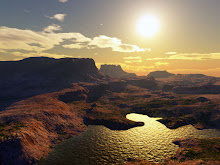













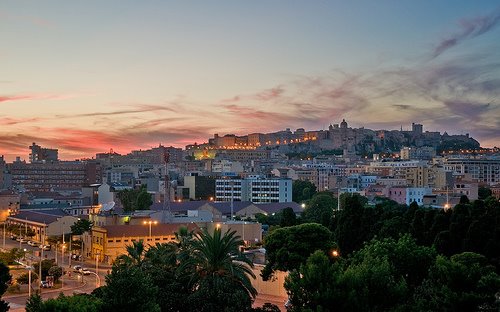

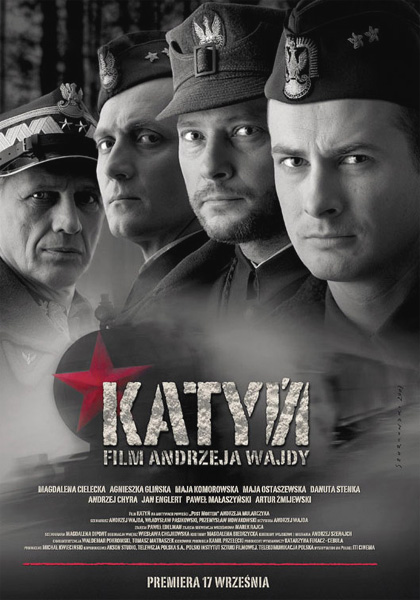
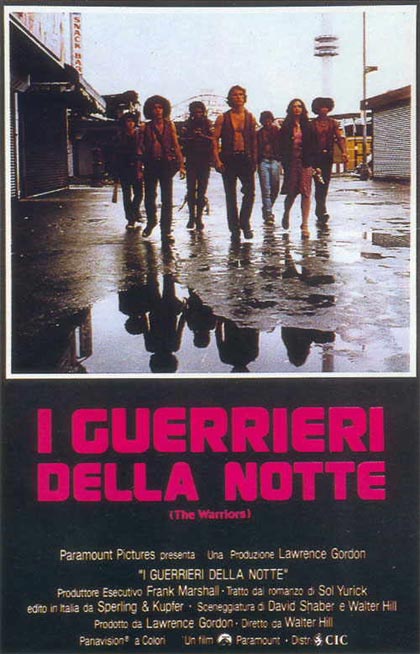



















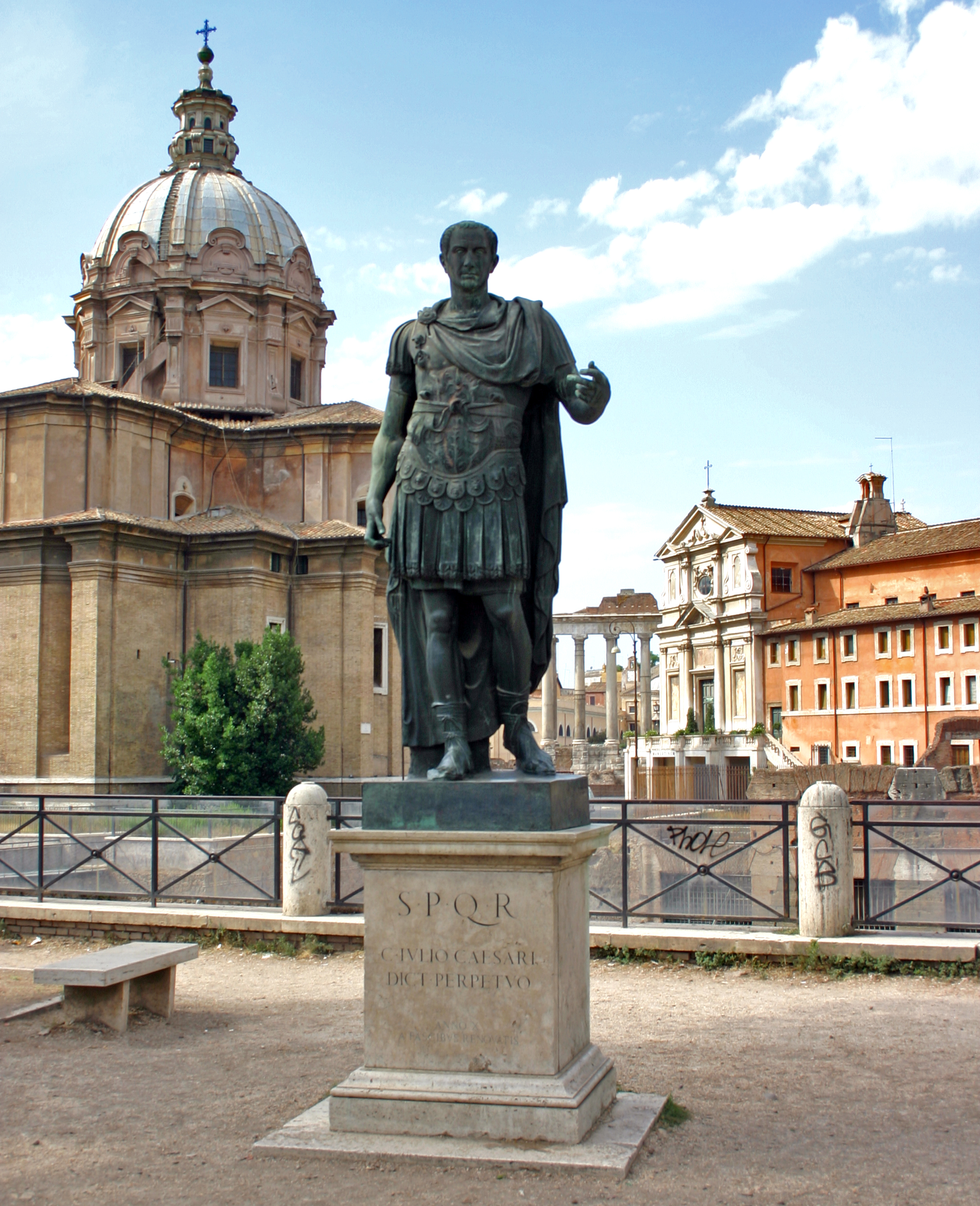

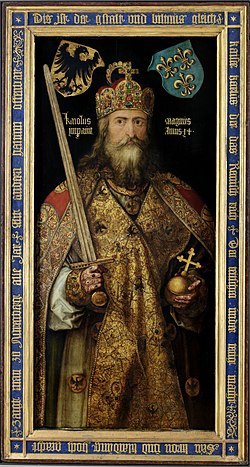














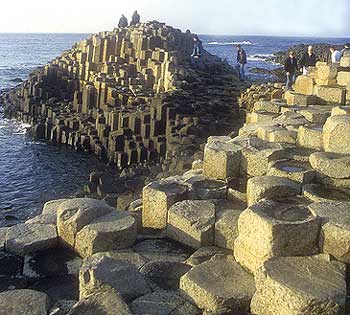















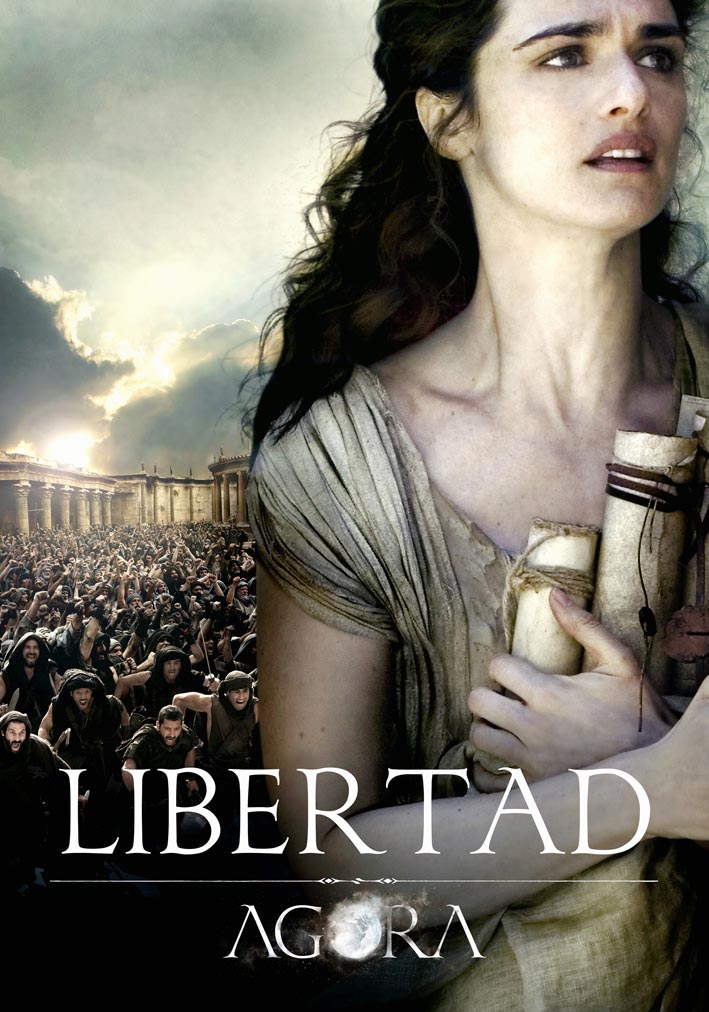




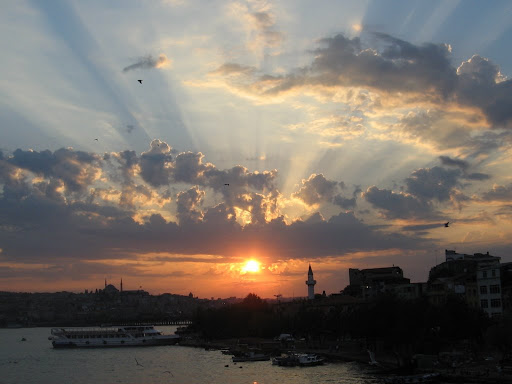






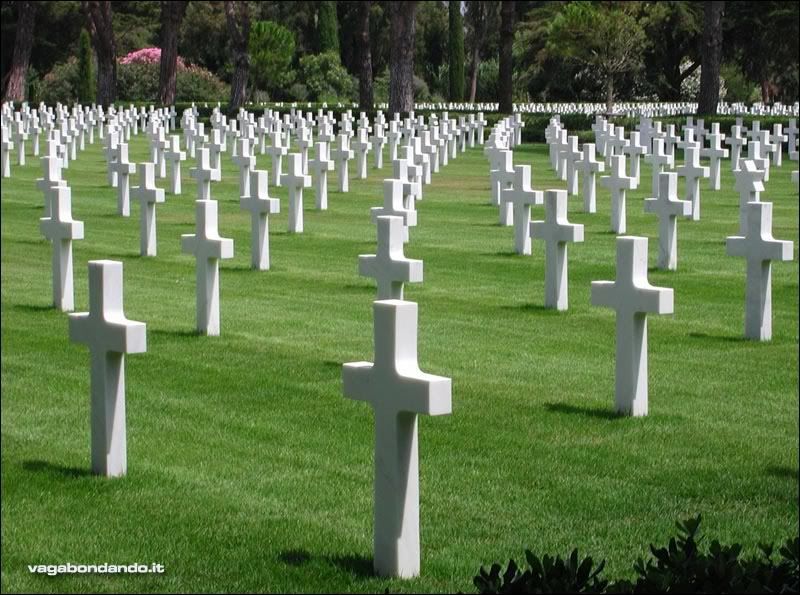











Nessun commento:
Posta un commento